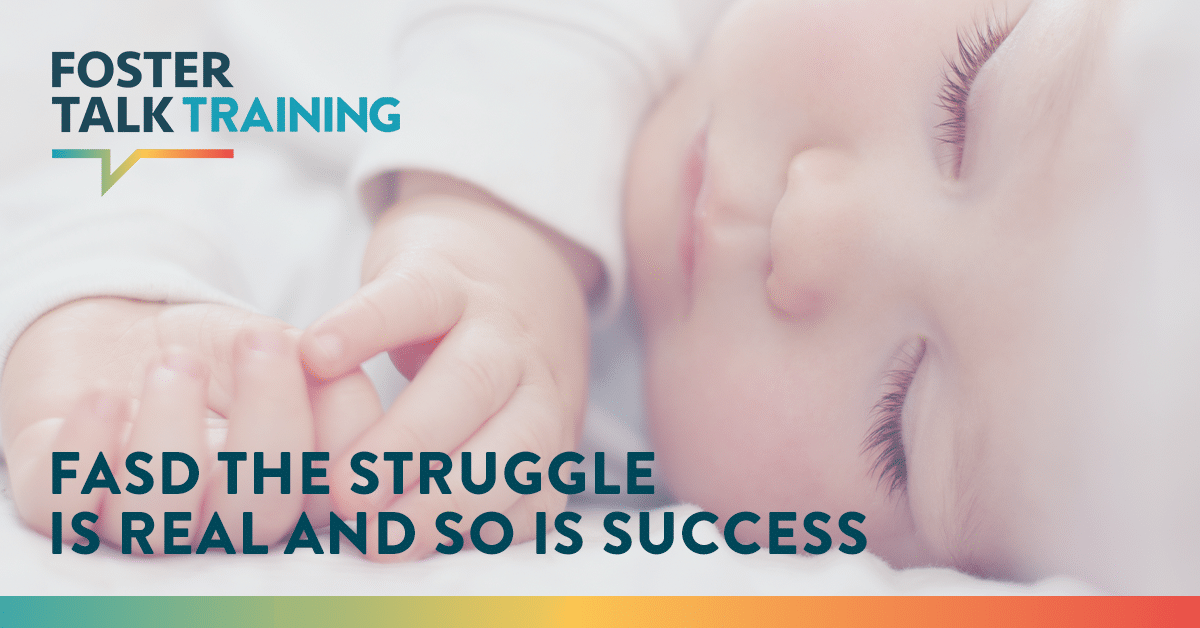
FASD The Struggle is Real and So is Success 19/9/2022
ASD THE STRUGGLE IS REAL AND SO IS SUCCESS
FosterTalk are excited to announce our new training partnership with Robbie Seale, FASD Educator and host of the FASD Family Life Podcast.
Our Foetal Alcohol Syndrome course is perfect for Foster Carers that want to understand more about what FASD is, the causes and the impact. This course will look at the signs and symptoms of Foetal Alcohol Syndrome Disorder as well as identifying the needs of children who have the conditions.
FASD is the leading cause of developmental disability in the world and is a diagnostic term used to describe impacts on the brain and body of individuals prenatally exposed to alcohol. It is a lifelong neurodevelopmental disorder that occurs in all cultures and levels of society, causing mild to severe impairments in physical, cognitive, sensory and behavioral development.
Fetal Alcohol Spectrum Disorder (FASD) Training is essential for every person who works with children and youth in care. FASD training will transform your social work practice, stabilise foster care placements and dramatically improve outcomes for youth in care.
ABOUT ROBBIE
Robbie Seale, former child and youth care worker, is the mother of five children, four of whom were adopted from the child welfare system. Each of her adopted children were prenatally exposed to alcohol and trauma; three have been diagnosed with Fetal Alcohol Spectrum Disorder.
Robbie has a Ph.D. in lived experience! With more than 20 years experience raising children with FASD, Robbie has advocated for her children in the face of incredible adversities including; foster care, kinship care and adoption, medical fragility, learning disabilities, trauma, behavioural challenges, developmental disabilities, addiction, homelessness, and more.
Robbie has a Ph.D. in lived experience! With more than 20 years experience raising children with FASD, Robbie has advocated for her children in the face of incredible adversities including; foster care, kinship care and adoption, medical fragility, learning disabilities, trauma, behavioural challenges, developmental disabilities, addiction, homelessness, and more.
Ignited by her passion to help families thrive, Robbie delivers effective FASD training to parents, caregivers and professionals. Her message is clear, “The struggle is real and so is success!”
It is estimated that 5% of the general population in the UK have Fetal Alcohol Spectrum disorder. Studies indicate that 80% of individuals with FASD are raised in foster care, adoption, kinship care arrangements, and group homes. Prevalence of children and youth with Fetal Alcohol Spectrum Disorder in Fostercare in the UK are estimated to be upwards of 60%.
OBJECTIVES
- FASD definition & prevalence
- Alcohol impact on brain development
- FASD across the lifespan
- Neurobehavioral model Foundation for a stable placement
- Strategies for success and improve outcomes for individuals with FASD

